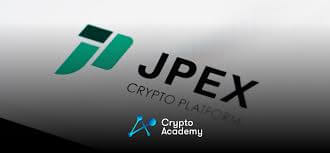
Monday Nov 27 2023 13:12

6 min

The JPEX fraud case is the largest and one of the most egregious fraud cases in Hong Kong in recent years, involving several high-profile Hong Kong celebrities, including Julian Cheung, Nine Chen, Lam Chok, Chan Yee and Clement Chan. Over 1,400 victims have been reported, with losses exceeding HKD 10 billion.
Securities and Futures Commission (SFC) onced raised the following suspicious concerns regarding JPEX:
Jpex claimed to be a "licensed and regulated" cryptocurrency exchange platform on its website, but this was not the case. The SFC received complaints that some retail investors were unable to withdraw their funds from their JPEX accounts, and some reported that their balances had been reduced or manipulated. JPEX used to market itself as the "Japan Exchange," which was misleading, as the "real" Japan exchange group, JPX, has stated that it has no relationship with JPEX.
These concerns suggest that JPEX may have been engaged in fraudulent or misleading activities. Investors should be cautious about dealing with JPEX or any other cryptocurrency exchange that is not licensed and regulated by financial authority. Back to July 2022, the Hong Kong Securities and Futures Commission has listed JPEX in the list of unlicensed companies and suspicious websites.
In this article, we will walk you through the JPEX background, Ponzi scheme, and red flags for spotting potential scams.
JPEX is a cryptocurrency exchange. According to their official website, JPEX operating headquarters is in Dubai and claims to have businesses licensed with the Australian Securities & Investments Commission (ASIC).
JPEX has been involved in a number of controversies, including allegations of fraud and misleading marketing. In 2023, the Securities and Futures Commission (SFC) launched an investigation into JPEX. The SFC also warned investors to be cautious about dealing with JPEX, as it is not licensed or regulated in Hong Kong.
JPEX's target market is primarily retail investors in Asia. The exchange offers a variety of trading services, including spot trading, margin trading, and futures trading. JPEX offers a variety of other features, such as a cryptocurrency wallet and a launchpad for their own cryptocurrency projects - JPC
JPC is the native cryptocurrency of the JPEX exchange. It is a utility token that can be used to pay for trading fees, margin fees, and other services on the JPEX platform. JPC could also be used to stake on the JPEX platform, which allows users to earn rewards in the form of JPC and other cryptocurrencies. It is important to note that JPC is a high-risk investment. The value of JPC is closely tied to the success of the JPEX exchange. If the JPEX exchange fails, the value of JPC is likely to plummet.
Next, we will explain what a Ponzi scheme is…
A Ponzi scheme is a fraudulent investment operation that pays returns to existing investors with money taken from new investors. It is named after Charles Ponzi, an Italian businessman who was convicted of operating such a scheme in the 1920s. In simple terms “new fresh money fills old debts”.
Ponzi schemes typically involve the following steps:
Ponzi schemes are often difficult to detect because they appear to be legitimate businesses. However, there are some red flags that investors can look for, such as:
If you are considering investing in an investment opportunity, it is important to do your research and understand the risks involved. If you see any of the red flags listed above.
Be wary of investments that promise high returns with little or no risk. This is a red flag that the investment may be a Ponzi scheme. Ponzi schemes typically lure investors with promises of high returns, but they are actually fraudulent and investors lose their money.
Next, do your research on the “investment” opportunity and the people involved. This includes learning about their investment plan, the risks involved, and the track record of the people involved. You can find this information on the company's website, in news articles, authoritative financial websites and even social media profiles such as LinkedIn.
Also, understand how your money will be used, if you don't understand how the investment works, or if you have any concerns about how your money will be used, better not to put your money in it.
Be careful of high pressure sales tactics. If a salesperson is pressuring you to invest, or if they are making claims that seem too good to be true, be wary. This is another red flag that the investment may be a scam. Get everything in writing, including the investment terms and conditions. This will protect you if there are any problems with the investment plan.
Last but not least, if you suspect that you may have fallen victim to a Ponzi scheme, it is important to report it to the authorities immediately.
Follow markets.com on social media for more financial tips and advice.
Stay up-to-date on the latest financial news and trends, and to learn more about how to make wise trading decisions through our free learning material.
Ready to join our amazing trading community? Creating an account with us is very easy.
"When considering "CFDs" for trading and price predictions, remember that trading CFDs involves a significant degree of risk and could result in capital loss. Past performance is not indicative of any future results. This information is provided for informative purposes only and should not be construed to be investment advice."
